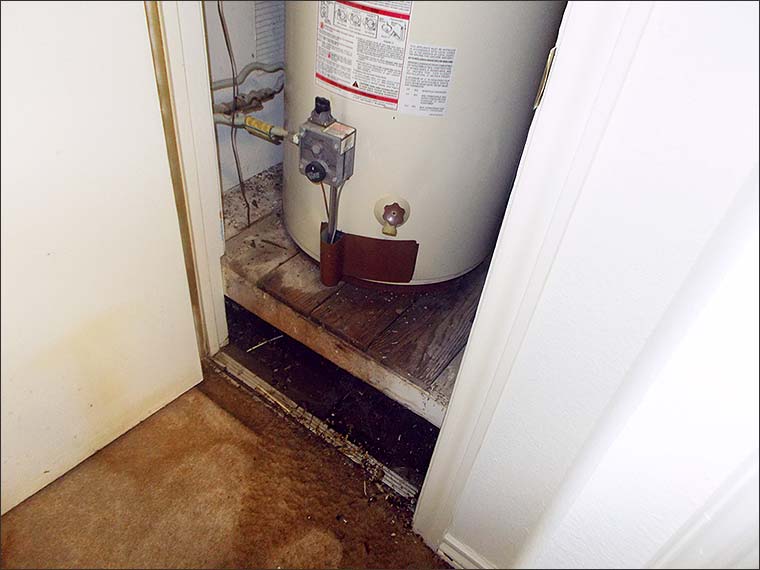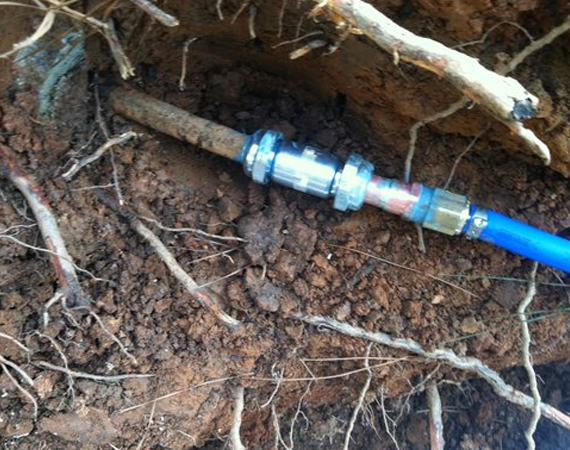5 Repetitive Water Leak Factors
5 Repetitive Water Leak Factors
Blog Article
How do you feel in relation to Common Causes of Water Leaks in the Home?

"Beware of little expenditures. A small leakage will sink an excellent ship." - Benjamin Franklin.
He could not have actually been much more ideal due to the fact that water leaks in our residences lead to a waste of sources, boosting our water costs. This rise could appear negligible at first, it can lead to substantial expenditures that can break your bank. Other than an increase in expenses, water leakages likewise cause undesirable natural growth, structural damages, as well as also electrical risks.
If you have a water leakage isn't always easy due to being unable to see most of the pipework in your house, figuring out. However, If you have had a boost in your water expenses lately, observed water discolorations on ceilings and wall surfaces, smelt poor smell, etc. You could intend to take into consideration requesting plumbing solutions to get it looked into.
There are a number of reasons for water leakages, and also we have actually put together the typical reasons below. Check to see if you have actually had associated issues in your house just recently.
Weakened pipe joints
Pipe joints are the components of our plumbing system where the pipes link. It is vital to keep in mind that also though pipes are designed to hold up against stress and last for a while, they weren't designed to last forever; for that reason, they would certainly degrade over time. An usual indication of damaged pipe joints is too much sound from faucets.
High water stress
You noticed your house water pressure is higher than usual however then, why should you care? It's out of your control.
It would certainly be best if you cared since your typical water stress must be 60 Psi (per square inch) and also although your house's plumbing system is created to stand up to 80 Psi. A boost in water pressure can put a strain on your residence pipes and also result in fractures, or worse, burst pipes. If you ever before see that your house water pressure is more than usual, get in touch with a professional about regulating it.
Deterioration
As your pipework gets older, it gets weak and also a lot more vulnerable to rust after the frequent flow of water through them, which can gnaw at pipes and trigger fractures. A noticeable sign of corrosion in your house plumbing system is discoloration and also although this could be difficult to spot due to many pipelines hidden away. We advise doing a frequent examination every couple of years as well as transform pipes once they are old to ensure a sound plumbing system
Obstructed drains
Food fragments, dirt, as well as oil can create clogged up drains and block the flow of water in and out of your sink. Increased pressure within the rain gutters can end and also create an overflow up splitting or breaking pipelines if undealt with. To prevent blocked drains pipes in your house, we advise you to stay clear of putting bits down the drain and normal cleaning of sinks.
Broken seals
Another reason for water leakages in homes is broken seals of residence appliances that use water, e.g., a dish washer. When such devices are installed, seals are set up around water ports for simple flow of water with the maker. Hence, a damaged seal can create leakage of water when being used.
With little or no understanding of plumbing, understanding your home's plumbing system sufficient to fix a few of these issues (without consequence) can be an inconvenience. Connect with plumbing professionals in Pittsburgh, Providence, Rochester, and environ today, and also they'll make those concerns vanish.
He could not have actually been much more right because water leakages in our residences result in a waste of resources, boosting our water expenses. If you have had a boost in your water expenses recently, observed water spots on walls as well as ceilings, smelt poor odor, etc. An increase in water stress can place a pressure on your home pipes and lead to cracks, or worse, burst pipelines. An additional cause of water leaks in homes is damaged seals of house appliances that utilize water, e.g., a dishwasher. When such appliances are mounted, seals are mounted around water adapters for easy flow of water with the machine.
5 TIPS IN DETECTING A WATER LEAK IN YOUR HOUSE
Water leaks can be hard to find in your home, yet they can be so common. We rely on water every day in our home, which is why a leak can cause big problems. By detecting them early, you can save money and further damage, getting the problem fixed as soon as possible. Here are 5 tips to help you detect a water leak in your home, so you can contact a plumber straight away and get the issue sorted.
Check your water meter
Many people underestimate the value of the water meter in their home. It can be one of the best ways to tell if you have a leak early on, so you can get on top of it before issues start arising. Start by turning off all the water in your home: taps, washing machine, dishwasher, etc. Now take a look at the meter – if it’s still changing with everything turned off, it’s likely you have a fast-flowing leak that you need to get on top of straight away. If nothing changes, then leave your meter for an hour or two and come back to it. Did it change in this time? It’s likely you have a slower leak, which isn’t as urgent but still handy to get fixed so it doesn’t become a bigger problem.
Keep an eye on your bill
Another good way to detect a leak in your home is by keeping an eye on your water bill. It helps if you have a past bill from the same period of time. You can compare like for like and determine whether your water usage has increased significantly. If it has, there may be a leak in your system that you haven’t picked up before. A professional plumber can check through all of your pipes and determine where it is coming from.
Look for damage
If you have a leak inside your home, you will notice damage over time. Take a look at your showers and bathtubs and note whether any of the tiles surrounding the area seem to be discoloured or damaged in any way. There may be water stains, mould or peeling material that has resulted from a build up of moisture over time. Make sure you take a look under sinks at the back of cupboards that don’t get accessed regularly. This is where damage can go unnoticed and build up over periods of time.

I was made aware of that write-up on Where to Find Water Leaks from an acquaintance on a different blog. Liked our review? Please share it. Let another person discover it. Thank you for taking the time to read it.
Best in business. Report this page